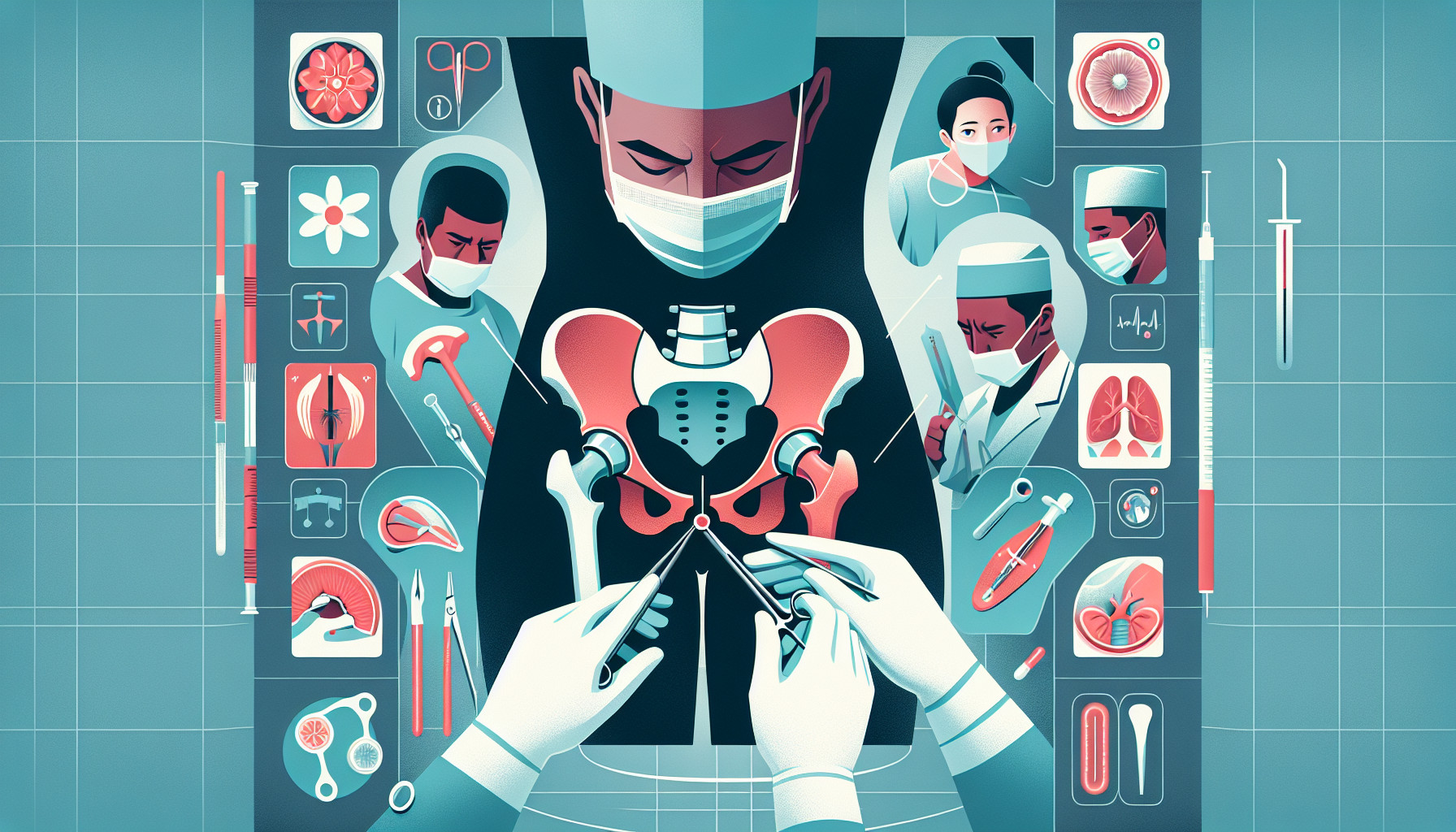Our Summary
The research paper discusses a method called “fast-track surgery” which is designed to decrease the stress a patient undergoes during surgery and helps speed up their recovery after operation. This method has been particularly successful in operations replacing the hip joint. It not only helps patients recover faster and leave the hospital sooner, but also reduces complications and the risk of death during surgery. Though, it’s now considered a standard for hip replacement surgeries, it needs some adjustments for patients with unique needs or multiple serious health conditions.
FAQs
- What is the main goal of fast-track surgery in hip replacement procedures?
- How has the fast-track programme improved outcomes for total hip arthroplasty patients?
- Are there any considerations or adjustments needed in the fast-track pathway for patients with special needs or high comorbidity burden?
Doctor’s Tip
One helpful tip a doctor might give a patient about hip replacement surgery is to follow a fast-track recovery program. This program aims to reduce surgical stress, shorten hospital stays, and speed up the overall recovery process. By adhering to the guidelines of the fast-track program, patients may experience quicker functional recovery and reduced complications after surgery. It is important for patients to work closely with their healthcare team to ensure they are following the necessary steps for a successful and efficient recovery.
Suitable For
Patients who are typically recommended for hip replacement surgery include those with severe hip pain and stiffness that limits their daily activities, such as walking, climbing stairs, or getting in and out of a chair. These patients may have been diagnosed with conditions such as osteoarthritis, rheumatoid arthritis, avascular necrosis, or a hip fracture.
Additionally, patients who have not had success with non-surgical treatments such as medication, physical therapy, or cortisone injections may also be recommended for hip replacement surgery. Patients who are generally healthy and able to tolerate surgery and anesthesia are also good candidates for hip replacement.
Patients with certain medical conditions or high comorbidity burden may require additional evaluation and optimization before undergoing hip replacement surgery. This may include patients with heart disease, diabetes, obesity, or other chronic medical conditions that could increase the risk of complications during or after surgery.
Overall, the decision to recommend hip replacement surgery is individualized based on the patient’s specific circumstances and needs, and should be made in consultation with a healthcare provider.
Timeline
Before hip replacement surgery:
- Patient meets with orthopedic surgeon to discuss the need for hip replacement and the procedure
- Pre-operative tests and evaluations are conducted to ensure the patient is healthy enough for surgery
- Patient may undergo physical therapy or other treatments to prepare for surgery
- Patient receives instructions on how to prepare for surgery, including fasting guidelines and medication adjustments
After hip replacement surgery:
- Patient is monitored closely in the recovery room for any complications
- Physical therapy begins shortly after surgery to help with mobility and strength
- Pain management techniques are implemented to ensure patient comfort
- Patient is discharged from the hospital once they are able to safely walk with assistance
- Follow-up appointments with the surgeon are scheduled to monitor healing and progress
- Continued physical therapy and rehabilitation may be necessary to fully recover and regain function in the hip.
What to Ask Your Doctor
- What are the potential risks and complications associated with hip replacement surgery?
- What is the expected recovery time and rehabilitation process after hip replacement surgery?
- How will pain be managed after the surgery?
- Are there any specific restrictions or limitations on activities following hip replacement surgery?
- How long can I expect the hip replacement to last?
- What type of implant will be used for the hip replacement and why?
- Are there any alternative treatments or procedures that could be considered instead of hip replacement?
- How often will follow-up appointments be needed after the surgery?
- What can I do to optimize my recovery and ensure the best possible outcome from the hip replacement surgery?
- Are there any specific considerations or modifications that need to be made for patients with my specific medical history or conditions?
Reference
Authors: Hansen TB, Gromov K, Kristensen BB, Husted H, Kehlet H. Journal: Ugeskr Laeger. 2017 Dec 18;179(51):V03170252. PMID: 29260691
